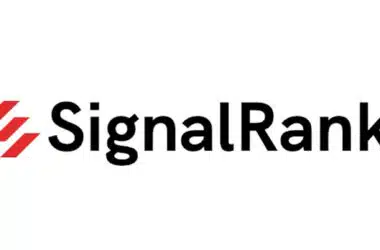Table of Contents
Key points to consider before entering into a Bank-Fintech partnership
In a world where digital banking is becoming the norm, traditional banks are partnering with Fintech companies to survive. While this can be a great move for both businesses, forging a successful partnership between banks and fintech companies isn’t always easy.
Big banks are not known for their risk-taking ability. However, as the digital revolution makes its way through finance and continues to take market share from banks, taking risks becomes a necessity. As a result, many banks are looking towards fintech startups to partner with in an effort to remain competitive. This move makes financial sense for both parties.
Banks can use their infrastructure and capital to finance fintech startups’ innovation while taking advantage of the startup’s agility. On the other hand, fintech companies have access to banking licenses and a large customer base that they wouldn’t have otherwise had if they were to go it alone.
While this symbiotic relationship is important for any bank and fintech company looking to succeed, it isn’t always easy. From differing business models to vastly different cultures and complex compliance requirements; establishing a successful banking and fintech relationship requires careful planning and consideration.
So let us look at three key factors that banks and fintechs should consider before entering into a partnership.
Regulators
Relationship with regulators is a major point that should be considered by both banks and fintechs before getting into any sort of partnership.
Before partnering with a fintech company, it’s important for banks to consider how well they are regulated. Fintechs must follow federal and state laws, so it’s important to make sure your potential partner is in good standing with the right regulators. If you are a bank then you should also ask the following three questions about how your fintech partner plans to manage regulatory obstacles that are likely to come up in the future.
- What steps will they take to keep track of and follow the regulations as they change?
- What legal requirements apply to their present services?
- Is their software licensed or certified, and what licenses or certifications are they required to have?
Managing compliance can be a daunting task for both banks and fintechs. In order to make sure that the relationship is successful, it’s important for both parties to take the necessary steps to manage compliance. This includes appointing an in-house expert or nominating a senior member of your team to build a relationship with regulatory bodies. It’s also important for banks to develop a vendor management program with oversight over their partners.
Data Security
Data security is a major concern for both banks and fintech companies. In order to ensure a successful partnership, it’s important for both parties to take the necessary steps to protect data. What sort of security measures do your fintech partners have in place? How does data security tie into existing policies and procedures, and what sort of protection is in place for sensitive customer data? These are all questions that banks should ask prior to any partnership.
However, data security is just one aspect of data protection. It is also important for both banks and fintechs to know how their partners intend to deal with a data breach once it happens. Is there a plan in place to minimize damage and prevent it from happening again? What would they do if the worst does happen, and how would they inform their customers and partners? These are all questions that need to be answered before entering into any sort of partnership.
The team
Getting to know the team that is running the fintech you are investing in is one of the most important tasks.
The human factor is always overlooked in fintech. We can understand why sometimes, given the amount of money involved and the complexities involved which requires expertise in the field of finance or data science, but it cannot be denied that at least some degree of emotional intelligence would be required. It’s quite easy to look past this fact when real-world use cases are being delivered.
For a bank that is getting into a partnership with a fintech, particularly a young one, it is absolutely vital to analyze the team behind the idea.
First, they should look at the business leadership itself. On this, should be the founders and key people running the daily affairs of the fintech company. They need to do a proper background check and analyze how competent and well-connected these leaders are.
Second, banks need to take a close look at their product development team and ensure that they have the right mix of people with a solid product vision.
In this regard, having a technical co-founder, product managers and software engineers is ideal.
Third, banks need to look at the customer support and marketing teams of the fintech company. Do they have a good understanding of the market challenges? Is their digital presence strong enough? Finally, they should take a close look at how well they have been able to market themselves, how much brand awareness they have been able to generate and what sort of customers they have attracted.
The fact is that a bank partnering with a fintech doesn’t only want the technology or product offering from them, it’s also looking for a strong team with an understanding of its own business needs.
The benefits of partnering with a fintech company are clear, but it’s important to take the time to do your due diligence before entering into any agreement. Make sure you have a clear understanding of the relationship with regulators, data security measures in place, and who will be running the show. With careful planning, both banks and fintech companies can reap the rewards of a fruitful partnership.
















Recent Comments